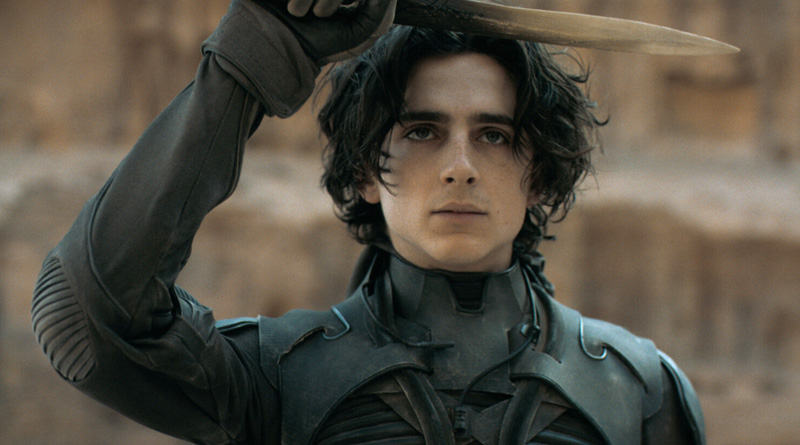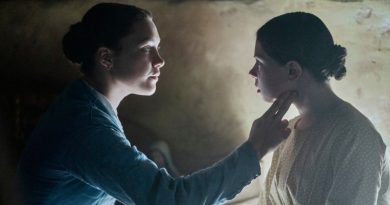Dune (2021) Review
To date, Denis Villeneuve has made two great cerebral sci-fi films in Arrival (2016) and Blade Runner 2049 (2017), even though the latter was sadly underperformed at the box office. But his surprisingly better-than-expected work in Blade Runner 2049 proves that Villeneuve managed to do the unthinkable. And that is, turning the otherwise needless sci-fi sequel to Ridley Scott’s beloved 1982 original into an unexpected cinematic gem.
This, in turn, gives me the confidence that Villeneuve is the right man for the job to pull off another impossible feat… by bringing the late Frank Herbert’s 1965 highly influential sci-fi novel Dune to life. The title, of course, isn’t the first time that Hollywood has attempted to bring it to the big screen. Back in 1984, there was a feature-length version directed by then-young David Lynch, whose prior works including 1977’s Eraserhead and 1980’s The Elephant Man got him the gig. The result, well, was a horrendous piece of work that even David Lynch himself famously disowned his film and never really wanted to talk about it ever since. Not to mention the 1984 film failed to recoup its then-huge $40 million budget. The embarrassing failure caused any further attempt to adapt the Dune novel into another feature-length film suffered from development hell. Except for the TV miniseries Frank Herbert’s Dune in 2000 and Frank Herbert’s Children of Dune in 2003, it only took over 35 years later that we finally get to see another big-screen version of Dune.
Back to Denis Villeneuve’s version, the first thing I appreciate the most is his decision not to condense everything into a single film, which turns out to be one of the biggest mistakes in the 1984 movie. Instead, he splits it into two parts with the second film yet to be filmed at the time of writing. In other words, whether we get to see the second part in the future will depend on how much the first film managed to accomplish in the worldwide box office.
For now, let’s focus on the first film, where the story takes place in the far future in the year 10,191. Duke Leto Atreides (Oscar Isaac) of the noble House Atreides from Caladan is in charge of governing the desert planet, Arrakis a.k.a. Dune, which contains the valuable substance known as “spice” under the order of the Emperor. The Spice in question not only helps to extend life but also improves vitality, enhance psychic abilities and even fold space upon interstellar travel.

But prior to handling the responsibility to House Atreides, it was the Harkonnen led by the ruthless Baron Vladimir Harkonnen (Stellan Skarsgård), who has been in charge of the aforementioned desert planet for many decades. Not happy with the fact they need to leave the planet, he sets up a plan to retrieve it at all costs since they have been making a lot of profit mining the spice with the help of his nephew, Rabban (Dave Bautista).
Meanwhile, Duke Leto’s son, Paul (Timothée Chalamet) finds himself constantly having the same dreams over and over again. Dreams that involve everything from him getting deeply involved with a mysterious blue-eyed girl (Zendaya) from the indigenous Fremen tribe of Arrakis to seeing himself being a messiah of sorts. His mother, Lady Jessica (Rebecca Ferguson), who is Duke Leto’s longtime concubine, has been trying to teach him how to control people’s minds using the “Voice”.
Shot with IMAX cameras, Villeneuve knows well that nothing beats the tangible feeling of enormous practical sets and props as well as on-location shoots, with the latter’s majestic deserts of Jordan served as an actual backdrop for the desert planet of Arrakis. The CGI isn’t used extensively but rather sparingly, unlike most big-budget sci-fi films would rely either solely or too much on the technology and of course, the greenscreens. As a result, watching this on IMAX is both immersive and spellbinding. It was exactly the same feeling that kept me hooked in the first place after watching Blade Runner 2049 four years ago.
Kudos also go to Patrice Vermette’s epic production design and Greig Fraser’s cinematography that looks like an intergalactic version of David Lean’s Lawrence of Arabia (1962). This can be evidently seen during the desert scenes that take place on the Arrakis planet. Then, there’s Hans Zimmer, where his prominent use of loud chant, wailing and thumping drums dominate the screen to largely great effect.
The story — credited to Villeneuve along with Jon Spaihts and Eric Roth — is expectedly filled with lots of exposition. After all, the first film is more about setting up the story with all the worldbuilding over the course of a 2 1/2-hour length. Films that leans more on exposition-heavy scenarios often falters when a director fails to hold one’s interest. But in the case of Villeneuve, there’s a mesmerising sense of storytelling quality that he and his two co-writers manage to sustain most of my interest throughout the film right from the start. The nifty combination of sound and visuals made the exposition all the more involving.

Dune is also blessed with some of this year’s best all-star casts, beginning with Timothée Chalamet’s engaging performance as the conflicted Paul Atreides. The fact that he manages to hold his own against his veteran co-stars is already impressive enough. Speaking of the co-stars, both Oscar Isaac and Rebecca Ferguson bring strong supports to their respective roles as Duke Leto and Lady Jessica. Josh Brolin delivers a rugged charm to his no-nonsense role of a warrior-fighter and a weapons expert, Gurney Halleck.
The same also goes with Jason Momoa as Duncan Idaho while the nearly unrecognisable, heavy-in-makeup Stellan Skarsgård delivers a creepy performance as Baron Vladimir Harkonnen, whose overall appearance reminds me of the late Marlon Brando in 1996’s The Island of Dr Moreau. Charlotte Rampling, who has a small role as a Reverend Mother of the powerful Bene Gesserit witches, manages to make quite a lasting impression during a pivotal hand-in-a-box scene involving Paul Atreides.
However, some of the cast members are sadly reduced to background roles or barely given much to do, namely Dave Bautista as Rabban and Javier Bardem as the Fremen leader, Stilgar. And while I appreciate most of the commitments that Villeneuve successfully fulfilled in the technical department, he somehow fails in generating the necessary sense of impact in the action sequences. It’s not like he stumbles entirely, with some of the earlier scenes including a buzzing shield-like swordfight training involving Paul and his mentor, Gurney and the spectacular rescue moment in the open desert filled with an impending, gigantic sandworm (great creature effects) deserve a few praises.
But the decision of setting up most of the action sequences either in the dark or dimly lit environments somehow lack the palpable tension, even with Hans Zimmer’s booming score echoing in the background. The shield technology, which is prominently used during the battle scenes, may have been a better upgrade than the cartoonish-style blocky visuals seen in the 1984 version. And yet, the shield buzzes in blue and red in the entire bodies of every soldier of House Atreides fighting against enemies, are more visually distracting.
Despite some of the shortcomings, Denis Villeneuve’s version of Dune remains a massive improvement over the messy 1984 original. Now, let’s hope the first film is financially successful enough to warrant a second part since it ends abruptly with a cliffhanger.





